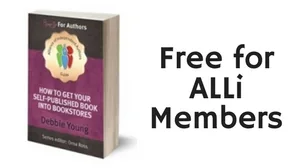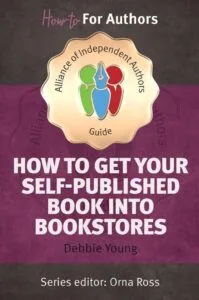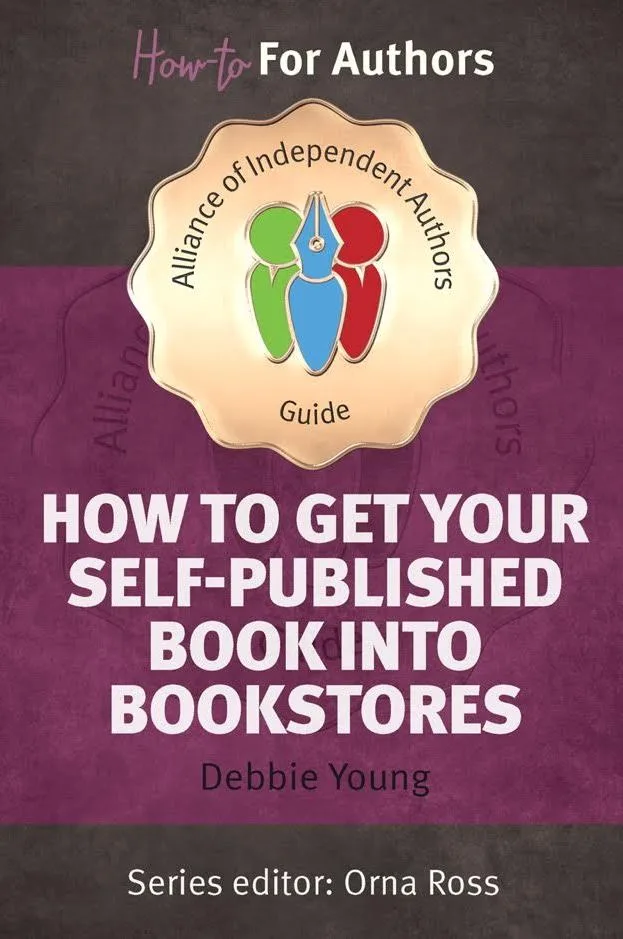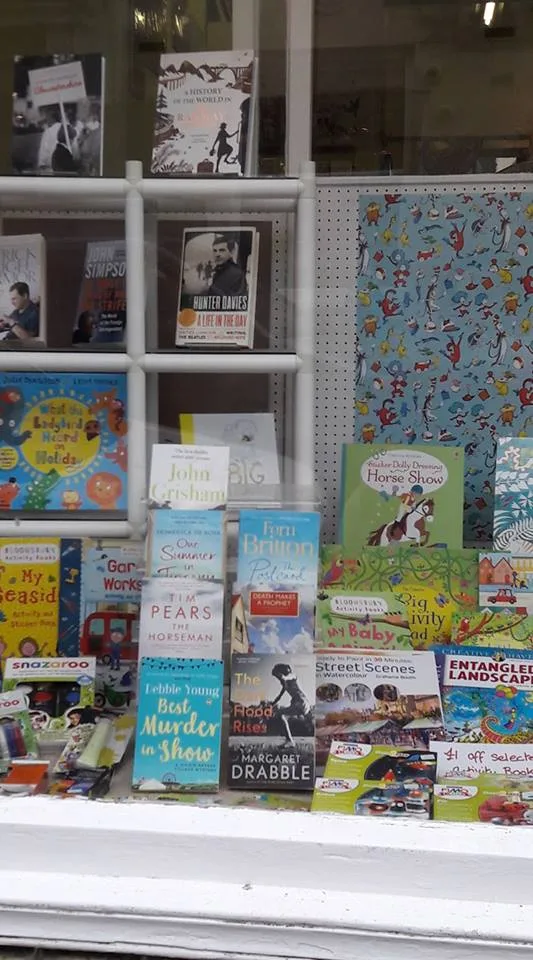
Also available for non-members to buy
The latest guidebook for indie authors in ALLi's Successful Self-publishing Series has been written to answer one of the most frequent questions posed by self-published writers: “How do I get my book stocked in a bookstore?” – and the frequent supplementary query: “Is it even worth trying?”
Although most indie authors make most of their sales online, many writers would love to see their books stocked in bricks-and-mortar stores – the kind where we bought books when we were kids, before Amazon was even a glint in Jeff Bezos's eye. But many of them fear it can't be done.
By an extraordinary coincidence, two friends messaged me yesterday to say they'd just spotted my latest novel in the window of a local bookstore
At ALLi, we believe it is possible for indies to work effectively with bookstores, and many of our author members are doing so. We also believe it is the indie's prerogative to choose whether or not to take that route, and no author should feel a failure if they don't.
But to make the decision that's right for you, you owe it to yourself to acquaint yourself with the facts, rather than be deterred by rumours or misinformation.
If you make the effort to understand how bookstores operate, to view the indie author from the bookseller's side of the counter, you can only enhance your chances of success.
We hope the following fictitious case study of Fred Fly, inspired by our conversations with booksellers around the world, will make you realise the issues are not as straightforward as they might seem, and that it will make you want to read our new guidebook to give you a better chance than Fred of getting your self-published books into bookstores:
How NOT to Do It: A Lighthearted Cautionary Tale
On a busy, crowded Saturday, when customers are queuing at the tills, Fred Fly walks into the bookstore, straight from the door, with no real interest in any aspect of the store other than its potential to stock his book. Although he lives less than a mile away, he hasn’t been in the shop since he was a schoolboy, so has to search to find the sales counter.
He joins the small queue, sighing impatiently as the lady in front of him pays for a large pile of expensive books using her well-worn store loyalty card. When he finally gains the bookseller’s attention, he produces his book with a flourish, almost as if expecting a round of applause.
“I’ve written a book,” he says, pointing proudly to his name. “That’s me, Fred Fly, and I live across town from here. So I’m a local author. And I’ve self-published it too. So, how many copies would you like me to provide for your first order? Ten? Twenty? Fifty? I have a gross of them out in my car, so if you want to display a big pile in your window, I have plenty of stock.”
The bookseller looks at the book, trying to work out what genre it’s in, and what the local connection is. He also has trouble reading the title, which is in an artistic swirly print in dazzling colors. He flips it over to read the blurb, in hope of the missing clues. It’s full of anonymous reviews—or rather, gushing quotes attributed to an anonymous “Amazon reviewer.”
The bookseller's hackles rise: only this morning another potential customer, after grilling him for information about the best birdwatcher’s handbook, had turned down the chance to buy the recommended book, saying “Oh, no thanks, now I know what I’m looking for, I’ll order it on Amazon when I get home—it’ll be much cheaper and save me carrying it.”
The bookseller is conscious of the growing queue behind Fred Fly, and though he doesn’t want to waste genuine customers’ time, he doesn’t wish to appear rude. After all, his store has a reputation to maintain.
“Can you just leave your AI sheet with me please, so I can look at it later?” Fred Fly looks blank. “You know, with the salient points about the book? What’s special about it? Price? Stockists? Reviews? Endorsements?”
Fred Fly frowns.
“What do you need some sheet for? I’m giving you the whole book for free. Just try reading it, and I’m sure you’re going to love it. All my friends do. My mother said it’s the best book she’s ever read.”
“What about your terms? Are you offering sale or return? What discount can you offer? We expect 40% as standard.”
“40% discount? After all my hard work writing it? Are you trying to be funny? No, thank you, I’ll take it elsewhere, to someone who really appreciates a good book when they see it.”
Exit Fred Fly, in a huff, never to darken the store’s doorstep again, much to the bookseller’s relief. Back at home, Fred tweets his disgust at the lack of support for self-published books from his local bookstore, tagging the store in case the bookseller sees the error of his ways and decides to order his book after all. Meanwhile, the bookseller discreetly shares his experience with colleagues in a private forum, garnering sympathy and moral support and putting them on their guard for when Fred comes knocking at their bookstore door…
 If you're a member of ALLi, you can download the new guidebook free by logging into our membership website.
If you're a member of ALLi, you can download the new guidebook free by logging into our membership website.- If you're not a member of ALLi, you can now buy the ebook online at all the usual places .
- Not a member but would like to be? Free guidebooks are just some of the many benefits of membership – find out more about membership here.
- If you prefer a paperback copy of reference books, you'll be pleased to know that we'll be launching the paperback edition at the start of September, as part of our #Authors4Bookstores campaign. More news on that nearer the time.
OVER TO YOU If you've found success with a particular bookstore, we'd love to hear the details – please feel free to share your experience via our comments box.
How to get your #selfpublished book into #bookstores - from @IndieAuthorALLi's latest guidebook by @DebbieYoungBN Share on XOTHER VALUABLE INSIGHTS INTO WORKING WITH BOOKSHOPS FROM THE ALLi ARCHIVE





